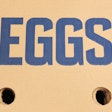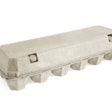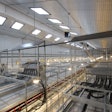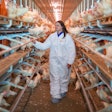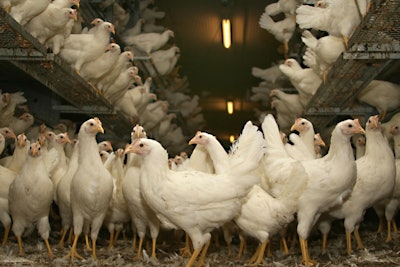
Egg producer Cal-Maine Foods is working to increase its cage-free sector to satisfy legislation and customer commitments, despite new outbreaks of highly pathogenic avian influenza (HPAI).
Cage-free housing mandates and customer commitments have put strain on the U.S. egg industry and left producers wondering if they can afford to convert their facilities. While the conventional egg demand is still significantly higher than the cage free, companies who produce for legislated states are still forced to convert their operations.
Companies who decide not to convert often sell their facilities to larger producers, such as Cal-Maine, who are working to increase their cage-free capacity.
Our recent acquisition of Fassio Egg Farm is a good example, explained Max Bowman, Cal-Maine Foods Vice President and Chief Financial Officer.
“(Fassio) is a cage-free facility in a great market area right outside of Salt Lake City and is an easy reach to the West Coast where cage-free eggs are taking off and legislative mandates have occurred,” he said.
Even though conventional demand is still the priority, we can still make demand predictions about the states that have cage-free legislation, he added.
Additionally, to further the company’s cage-free sector, Cal-Maine Foods President and Chief Executive Officer Sherman Miller said the company has three cage-free projects underway:
The producer plans to invest in its MeadowCreek facility and support the production of value-added cooked egg products, add significant cage-free expansions to its Red River Valley Egg Farm to strengthen its presence in Texas and enhance its distribution capabilities across California, Arizona and Nevada.
Additionally, the producer said it is in the process of converting multiple of its conventional facilities to cage-free systems.
HPAI
While the U.S. egg industry went months without a case of HPAI in a commercial flock, the virus has affected multiple flock in the last couple of weeks.
On November 6th, 2023, a commercial laying hen operation with 940,000 birds in Wright County, Minnesota, tested positive for HPAI. Shortly after, on November 14th, another commercial layer flock with 1,121,300 birds tested positive in Taylor County, Iowa.
Amidst previous HPAI depopulations and current ones, Cal-Maine believes some of the cage-free conversions going on in the U.S. are occurring as a result of depopulations from HPAI. “If I have an empty complex, what better time to convert?” added Miller.









